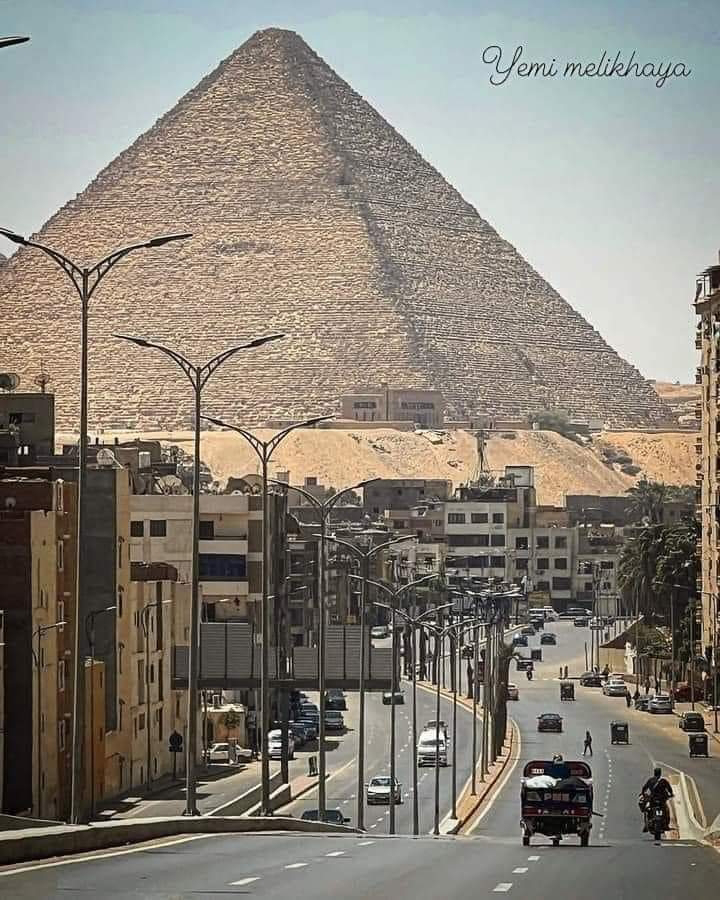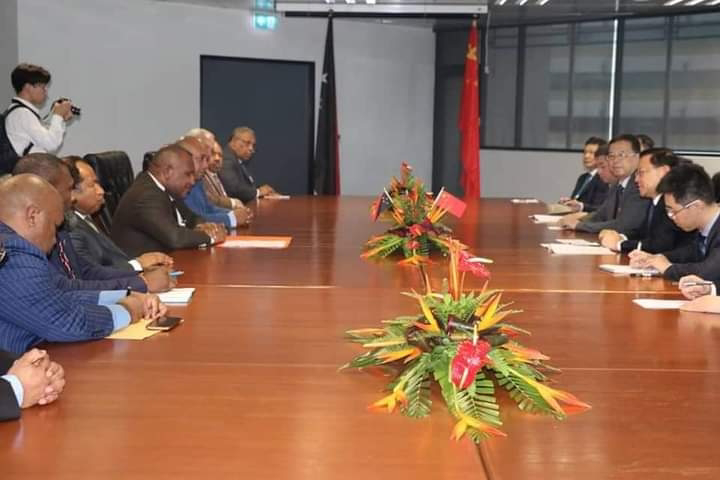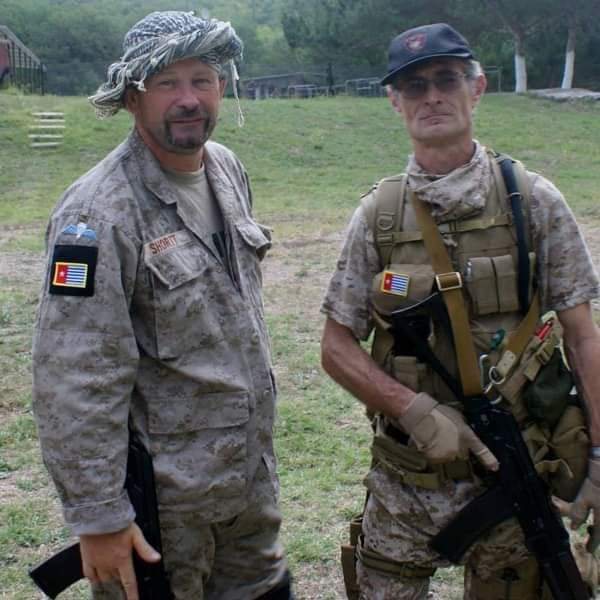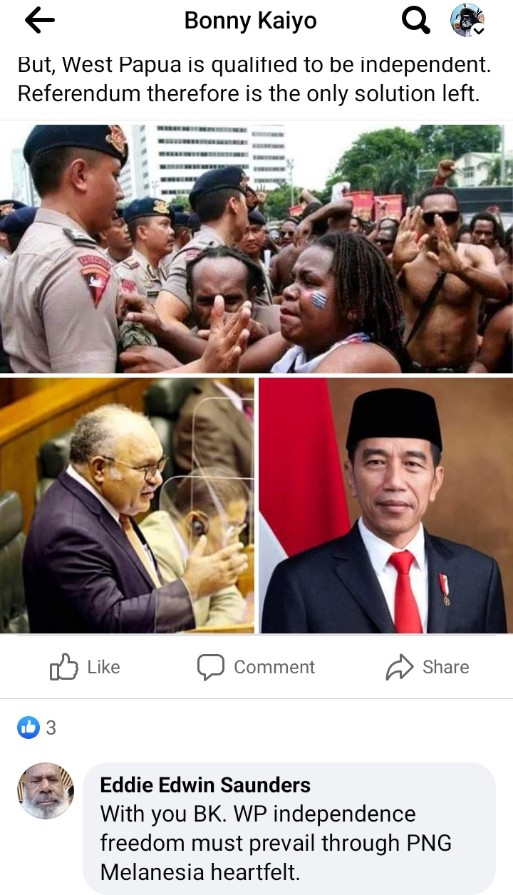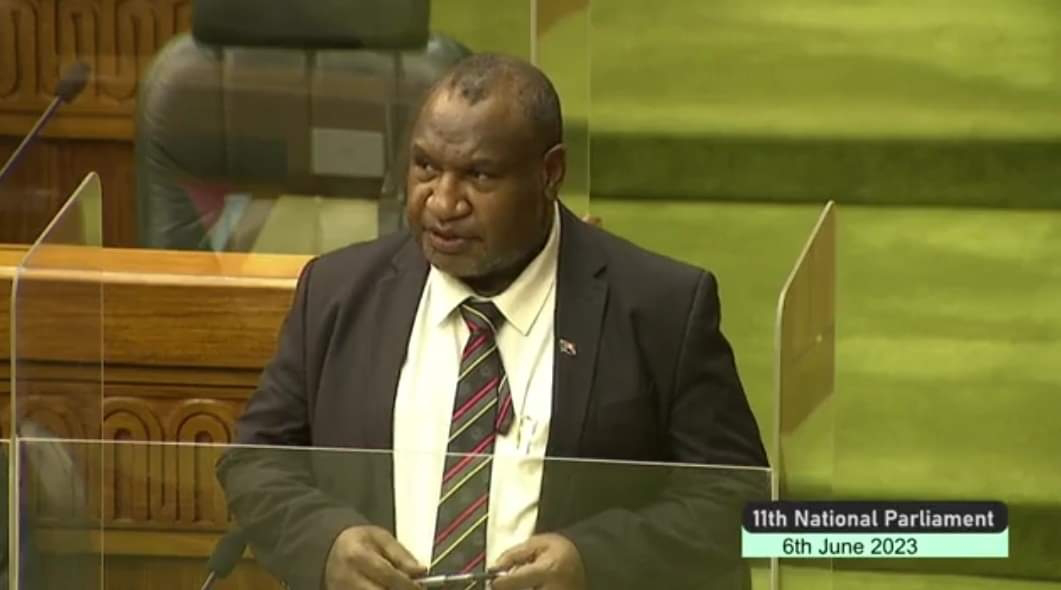2014 Interview.
A call for boycott of the 2019 Indonesian Presidential and General Elections by indigenous Papuans puts wind in the sail. And, it escalates the internationalisation of the West Papua issue since 2014. It was coming.
For decades Indonesia used the ‘security approach’ that led to nowhere. It was also Papuan nationalists who gained the hard yards.https://www.radionz.co.nz/international/pacific-news/384576/military-approach-questioned-as-violence-worsens-in-papua
And, Indonesia cannot continue its claim to illegal sovereignty over the former Dutch colony. This includes deception through propaganda as it fights the decades – old ‘secret war’ on Australia’s doorstep. The democratization project including extending universal suffrage to its restive region West Papua turns out to be a case of hubris & hypocrisy on steroids.
Here is why.
In Indonesia, Professor Amien Rais is the most influential Muhammadiyah figure. He is also former chairman of the Indonesian People's Consultative Assembly. His interview with Metro Tv in 2014, four years ago, put into its correct perspective the road map on the independence movement in West Papua.
Professor Amien Rais said the latest information on the West Papua issue is already in the public domain. He concluded that West Papua was on its way out of the unitary Republic of Indonesia.
In the age of internet and cyberspace technology, information on the West Papua issue was available at the finger tips, and the conclusions can be deduced when one explores the internet for answers to questions about the struggle for independence in the former Dutch colony.
The conclusion is based on his four findings:
(1) The issue of West Papua and its right to self – determination has become a problem for African countries.
(2) The struggle for independence by indigenous Papuans has escalated over the decades since the 1960s, but especially in recent years with a comprehensive network of advocacy groups through the world
(3)Pro – independence Papuan nationalists have systematically built an intellectual network with major universities throughout the world from Sydney to Harvard, Cambrigde, etc.
(4) If the West Papua issue is channeled through regional forums such as MSG and PIF, and eventually brought to the UN decolonization committee, Indonesia cannot do anything about it.
In the case of Aceh, there was a need for a third party, the same with East Timor in which the UN as the third party intervened to conduct a referendum. West Papua will follow by all means. This is because the empirical evidence is on the table. And, there is no other way to solve the West Papua Conflict but follow the examples of Aceh and East Timor.
The position held by Professor Amien Rais was shared by other Indonesian intellectuals.
Professor Dr. Adnan Buyung Nasution. In September 2015, aged 81, Indonesia bid farewell to a man known for his idealism, anti-corruption and criticism of any Indonesian president holding office, when he died at Pondok Indah Hospital, South Jakarta.
But, his legacy is fresh air that drives a ‘democratising’ Indonesia today.
He founded the Legal Aid Institute in Indonesia and was a legal expert whose reputation already became a legacy. In 2010, he was appointed as Honorary Professorial Fellow in the Melbourne Law School, in recognition of his huge contribution to constitutional studies and scholarship on Indonesian law, and his commitment to building the rule of law in his home country.
His pioneering work on legal aid and law reform, as well as being a key figure in the development of human rights law and constitutionalism in Indonesia, put him in a good position to talk on the West Papua issue. The reasoning is a very practical one, and put down to his defense of the weak.
Professor Dr. Adnan Buyung Nasution had a network of colleagues, and the consensus spread throughout the Indonesian civil society. In a democratising Indonesia, it is entrenched. And, allowing for error margin on the best way to look at the West Papua issue, this is traced to his work as a lawyer and human rights and pro-democracy activist during the reign of Indonesia's late President Suharto.
One of his perspectives is for a different conversation on West Papua, which he concluded is possible.https://www.radionz.co.nz/international/pacific-news/385679/west-papuans-urged-to-boycott-indonesian-elections
Since the 1960s, the ‘security approach’ by Indonesia was the biggest obstacle to finding a conclusion to debate surrounding two historical aspects relevant to West Papua’s demand for independence: first, West New Guinea’s past as part of the Dutch colony and its relations with Indonesia and second, the 1969 referendum, the so-called Act of Free Choice, to decide West Papua’s fate.
From the very beginning, Indonesian nationalism paved the way for its independence which was proclaimed on August 17, 1945. However, West Papua was never part of the conversation. Mohammad Hatta made this perfectly clear in a meeting between Indonesian representatives and the Japanese warlord in Saigon, Vietnam, 12 August 1945.
Mohammad Hatta who later became Indonesia’s first Vice – President said:
"... the Papuans are from the Negroid race, Melanesian people, so let the Papuans determine their own destiny ...".
Indonesia’s first president Soekarno also argued at the time that Papuans were still primitive so the independence of the Indonesian nation can do without them.
On August 17, 1945, Indonesia was proclaimed independent to cover the region included in the Dutch East Indies, namely "From Sabang to Amboina", not including the Dutch-New Guinea or West Papua.
So, the unitary Republic of Indonesia was defined by territorial boundary. The 1969 Act of Free Choice therefore is a demonstration of this fact. It provides the legal basis for a different conversation on West Papua. https://asiapacificreport.nz/2019/03/27/violence-in-papua-must-end-before-talks-says-nz-foreign-minister/
In the wake of the Indonesian democratization which began in 1998, it was taken for granted that post – 1998 Indonesia was to be built on democratic tenets of justice and human rights, constitutionalism, and rule of law.
And, there was momentum to revise the narration of West Papua’s history. Firstly, democracy has empowered the Papuans as the victims of a power struggle to challenge the previous Indonesia’s monolithic narration of history. Secondly, the Papuans’ alternative narration of history also serves as a medium of liberation from oppression by the Indonesian government. Thirdly, the Papuan story counters the theory that the narration of history is a privilege of the ruler and the winner.
The winds of change blew. In 2015, the same year Professor Dr. Adnan Buyung Nasution died, United Liberation Movement for West Papua or ULMWP was born led by Chairman and Leader of Free West Papua Campaign based in Britain, Benny Wenda. ULMWP grew in status.
And, Benny Wenda received a huge show of support during his visit to Ghana at the official invitation of the Government of Ghana to attend the country's birthday.
He was further interviewed for 1 hour live on TV 3 to explain the West Papua Conflict and struggle for independence for decades since the 1960s by the people of West Papua.
In the networking that was built to promote the Free West Papua platform in Africa, Benny Wenda also connected with Bishop Desmond Tutu and Nelson Mandela's family in South Africa. The conversation on West Papua in the African Continent Papua went as far as corridors of power of the Africa, Caribbean and Pacific (ACP).
Apart from Africa, there is Europe.
The Free West Papua Campaign platform has been another success story in another continent. Europe. In its meeting in Brussels, a presentation was made on West Papua at a joint meeting of the European Union Parliament in October, 2015.
In the region that West Papua belongs, the internationalisation of the independence struggle gave rise to another regional forum called South Pacific Forum. But, the supranational organisation would be unnecessary. MSG and PIF diplomacy is sufficient to channel the West Papua issue to the UN General Assembly for resolution. https://www.thejakartapost.com/news/2019/03/21/new-era-indonesia-south-pacific-engagement.html
For West Papua and its people, the promise of sovereignty has never been realized, despite a long and fraught struggle for independence from Indonesia.
Indonesia’s decades – old ‘secret war’ on Australia’s doorstep is over. There is no need for propaganda now, time up.
The advent of internationalisation of the West Papua issue confirms the observations made by Professor Amien Rais and Professor Dr. Adnan Buyung Nasution. Indonesia got it wrong for a long time.
West Papua will be free. And, for a simple reason. Indonesia failed to win the hearts of Papuans. https://www.radionz.co.nz/international/pacific-news/378810/papua-governor-calls-for-military-to-withdraw-from-nduga
(Photo Caption: Professor Amien Rais - the most influential Muhammadiyah figure in Indonesia, former chairman of the Indonesian People's Consultative Assembly; Professor Adnan Buyung Nasution - a different conversation on West Papua is possible; ULMWP Chairman Benny Wenda - called for popular mobilisation on 5 April 2019 to demand independence referendum; Mohammad Hatta - Indonesia's first Vice - president, Papuan race is negroid; Indonesia's 'security approach' to colonialism - indigenous rights were "domestic" and "internal" matters; Indonesia's democracy works elsewhere except West Papua - case of hubris & hypocrisy on steroids)






